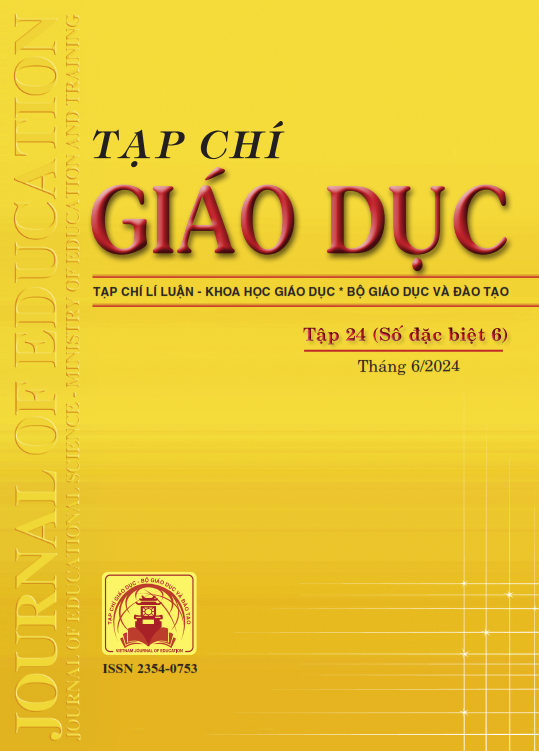Thiết kế và sử dụng trò chơi trong dạy học chủ đề “Điện trường” (Vật lí 11)
- Từ khóa:
- Design
- use
- games in teaching
- electricity
- physics 11
Tóm tắt
Game-based teaching is one of the active forms of teaching that creates learning excitement for learners. Learning games are one of the forms of teaching that promote students' positivity, initiative, and creativity. Through learning games, it is possible to develop for students many general and subject-specific competencies such as: communication and cooperation competence, problem-solving and creativity competence, and competence to useinformation technology,... However, this form requires teachers' creativity and flexibility in choosing appropriate games. The study presents the process of using games in teaching Physics and illustrates this process through games used in teaching the topic “Electric fields” (Physics 11). The use of games in teaching aims to create learning excitement for students, reduce stress during class while still achieving cognitive efficiency.
Tài liệu tham khảo
Bertram, L. (2020). Digital Learning Games for Mathematics and Computer Science Education: The Need for Preregistered RCT, Standardized Methodology, and Advanced Technology. Frontiers in Psychology, 11, 1-10. https://doi.org/10.3389/fpsyg.2020.02127
Chen, C. H., Shih, C. C., & Law, V. (2020). The effects of competition in digital game-based learning (DGBL): a meta-analysis. Educational Technology Research and Development, 68(4), 1855-1873. https://doi.org/10.1007/ s11423-020-09794-1
Đặng Thành Hưng (2002). Dạy học hiện đại - Lí luận, biện pháp, kĩ thuật. NXB Đại học Quốc gia Hà Nội. Đỗ Thị Phương Thảo, Phạm Minh Khánh, Trần Thị Phương Lan (2021). Thiết kế và sử dụng trò chơi trong dạy học Vật lí 11. Tạp chí Giáo dục, 496, 24-28.
Gross, K., & Wagner, M. (2013). Interactive cable installation: Designing a game-based learning tool for cable technicians. In ICERI 2013 (pp. 2836-2845). IATED Academy.
Hainey, T., Westera, W., Connolly, T. M., Boyle, L., Baxter, G., Beeby, R. B., & Soflano, M. (2013). Students' attitudes toward playing games and using games in education: Comparing Scotland and the Netherlands. Computers & Education, 69, 474-484. Lage, M. J., Platt, G. J., & Treglia, M. (2000). Inverting the classroom: A gateway to creating an inclusive learning environment. The Journal of Economic Education, 31(1), 30-43. Liu, Z. Y., Shaikh, Z. A., & Gazizova, F. (2020). Using the Concept of Game-Based Learning in Education. International Journal of Emerging Technologies in Learning, 15(14), 61-64.
Nguyễn Thị Bích Hồng (2014). Phương pháp sửdụng trò chơi trong dạy học. Tạp chí Khoa học, Trường Đại học Sư phạm TP. Hồ Chí Minh, 54, 174-179.
Zirawaga, V. S., Olusanya, A. I., & Maduku, T. (2017). Gaming in education: Using games as a support tool to teach history. Journal of Education and Practice, 8(15), 55-64.
Đã Xuất bản
Cách trích dẫn
Số
Chuyên mục
Giấy phép

Tác phẩm này được cấp phép theo Ghi nhận tác giả của Creative Commons Giấy phép quốc tế 4.0 .












